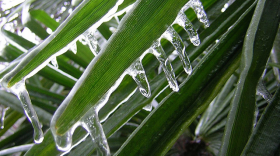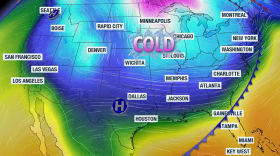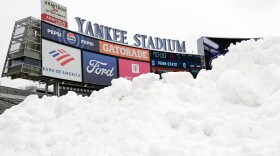MICHEL MARTIN, HOST:
Switching gears here to talk about refugees who resettle in the U.S. They often have to begin their lives all over again. They must learn the language, find jobs. And on top of all of that, some have to learn how to drive. And as NPR's Meghan Coyle reports, that can be a challenge, especially for women from countries where they were not expected to.
MEGHAN COYLE, BYLINE: Samar Sukar left Syria for El Cajon, a suburb of San Diego. She's happy and relieved to be living in this safe, sunny neighborhood. But there's one thing that's been pretty hard to get used to - she doesn't have a car or a driver's license. This is a typical California suburb. It's not designed for pedestrians. It takes 30 minutes to walk her 7-year-old to school.
SAMAR SUKAR: My young daughter, Lana - every time, I say, I don't like to come here to America because you don't have a car. We have to walk a long time. I feel tired (laughter).
COYLE: Sukar, her husband and their two daughters walk everywhere. It can take an hour to get to the store or the doctor. When Sukar was living in Damascus, she took the bus to school, where she worked as a teacher. Her husband had a car and did the driving for the family.
SAMAR: Transportation in my country is very easy to get them and very cheap. You have not to pay a lot to go anywhere you need.
COYLE: But then the war came to Damascus. Sukar could hear gunfire and see explosions from her home. Her daughters stopped going to school - a good decision because it was hit by a bomb. It was so dangerous that the family couldn't leave their house. They fled to Jordan and then eventually to the U.S.
UNIDENTIFIED DRIVING INSTRUCTOR: Pass the light, then change here.
COYLE: On a sunny Monday, Sukar is behind the wheel of a white Kia, navigating the California traffic. The local chapter of the nonprofit International Rescue Committee helped set up the lessons. She studied English in college, unlike her husband. So she's the first in her family to get a U.S. driving permit. Sukar sits up straight in the driver's seat. She never dares to take her hands off the wheel or her eyes off the road, even when her instructor tries to demonstrate making a turn with his hands.
UNIDENTIFIED DRIVING INSTRUCTOR: Stay on this lane and make a left hand.
COYLE: She drives by shops with Arabic writing on their signs, Middle Eastern restaurants. Iraqi and Syrian refugees have been moving to this neighborhood for decades. This is her seventh driving lesson, and she's getting more confident.
SAMAR: The first time I start driving behind the wheel, I wasn't very comfortable (laughter). For now, I feel comfortable. And I hope I'll pass the test.
COYLE: Sometimes her husband comes along.
SAMAR: Every time he say, Samar, be careful - Samar, go right, go left. Samar - every time he give me instruction, but he feel very happy. He say, I'm proud of you.
COYLE: He can't resist doing a little backseat driving even though he can't read the street signs. But his wife is the one in the driver's seat, holding the keys to her family's new life in America. She hopes to drive her kids to school and get a job translating. Then she wants to take her children to see the country they now call home.
SAMAR: My daughter, Isra, she says, mom, I'm here, and I want to see every state here, every city everywhere. She - her dream is to go to Disneyland.
COYLE: The next day, Sukar takes her driving test. I call her to check in.
You passed it. Congratulations. How does it feel?
SAMAR: I'm very happy.
COYLE: And the International Rescue Committee received a car donation, which they gave to Sukar and her family. For the first time in years, Sukar finally leave the house when she wants.
SAMAR: I can go everywhere, and anytime I want, any day I want. I feel freedom.
COYLE: It's not just a new vehicle. She's also acquired a core American value - cars equal freedom. Meghan Coyle, NPR News. Transcript provided by NPR, Copyright NPR.







